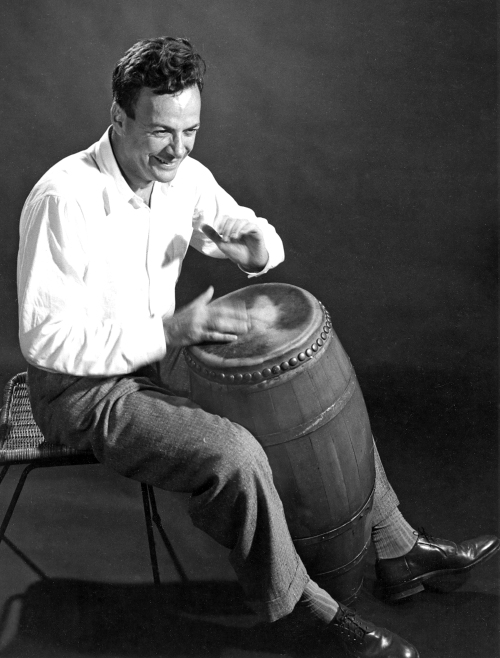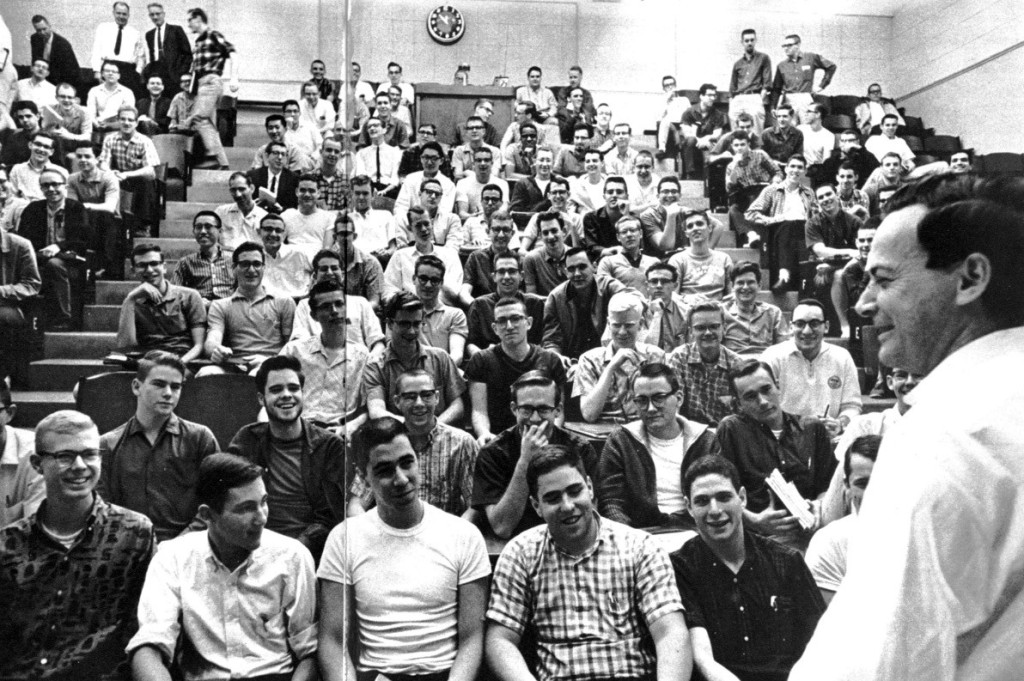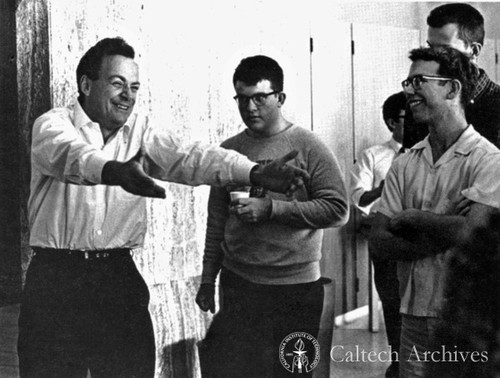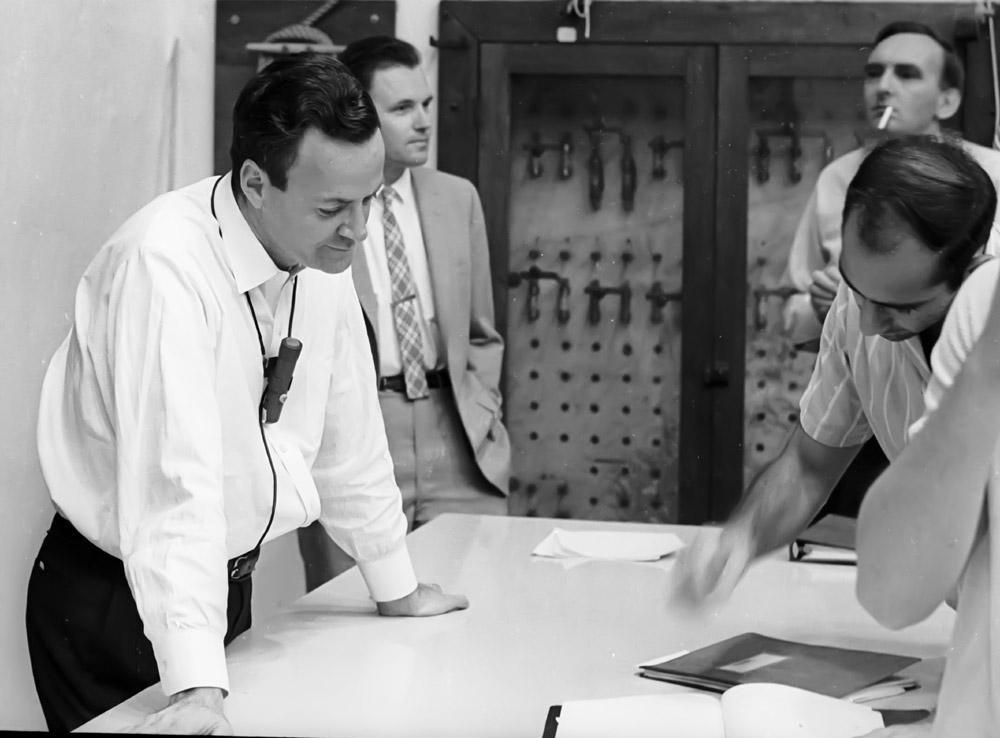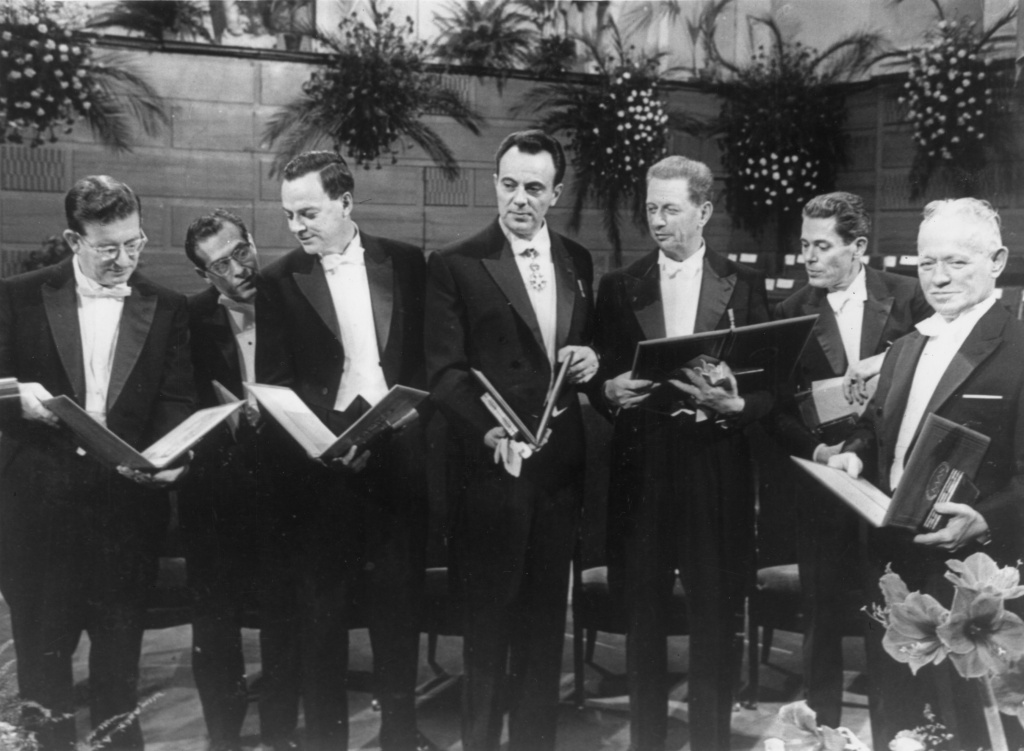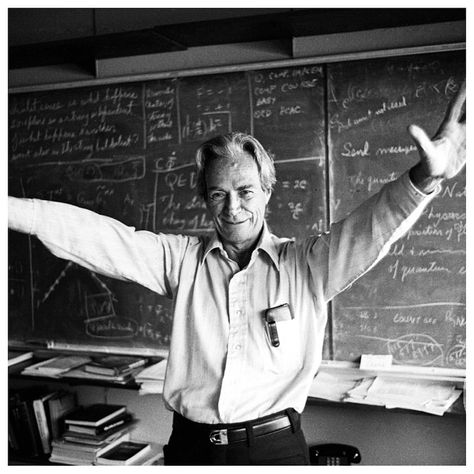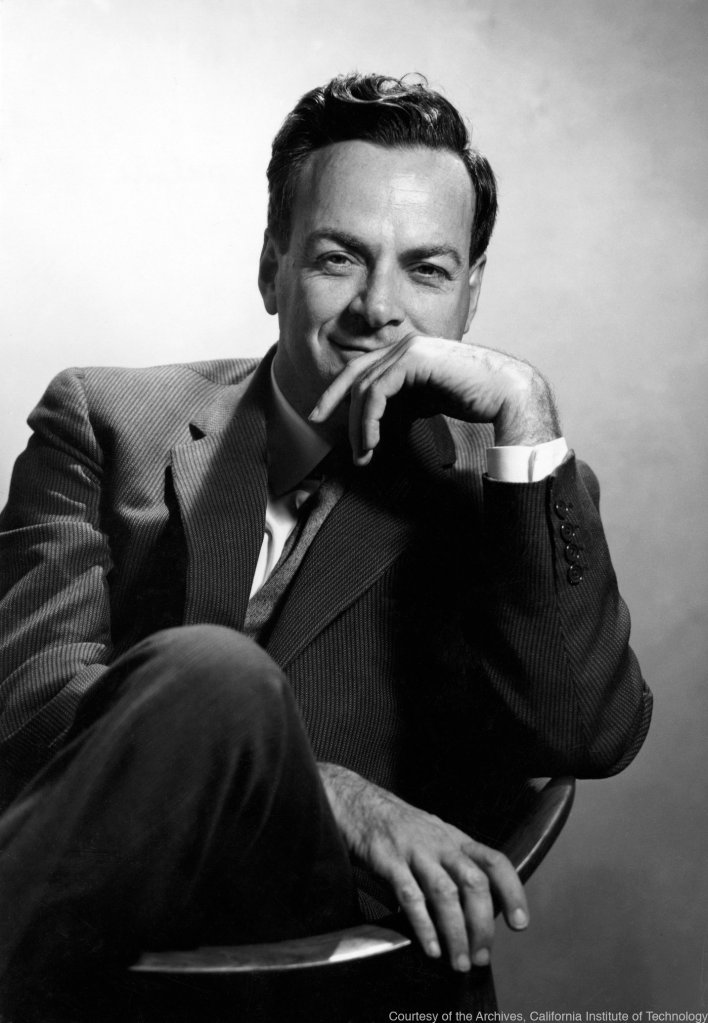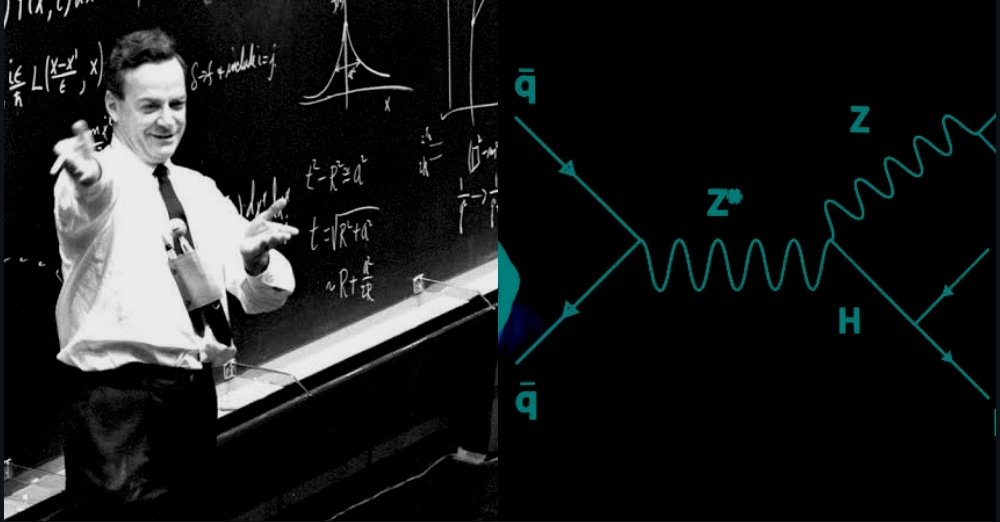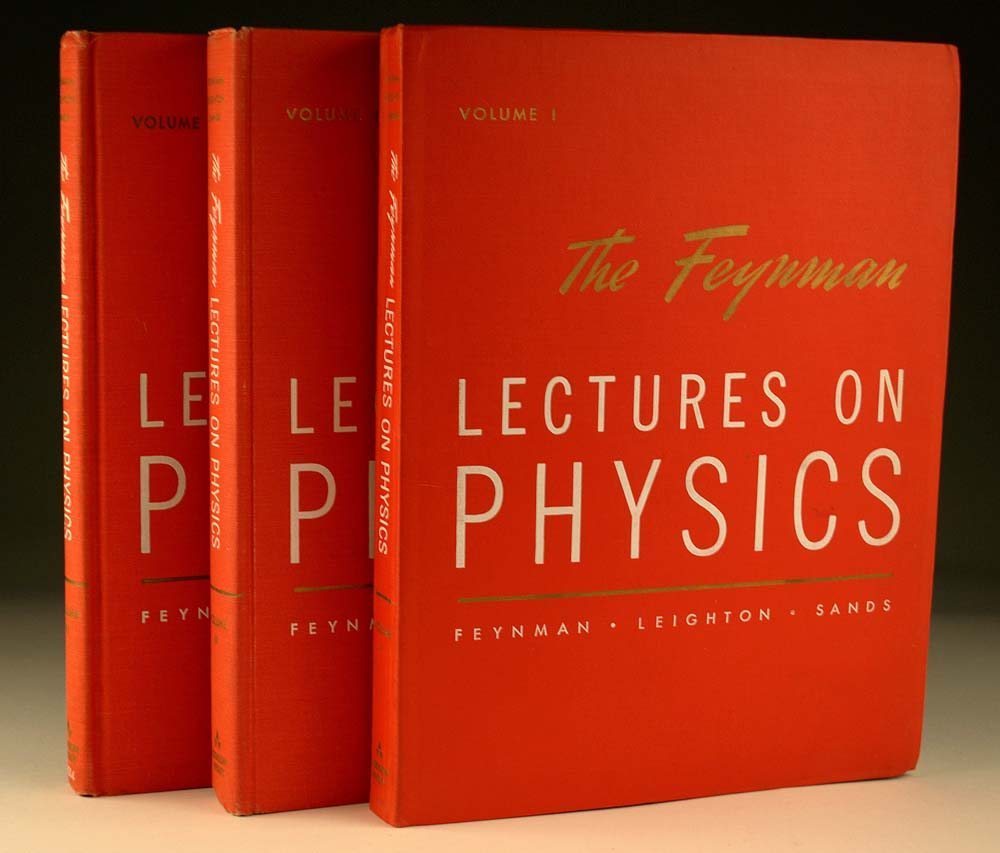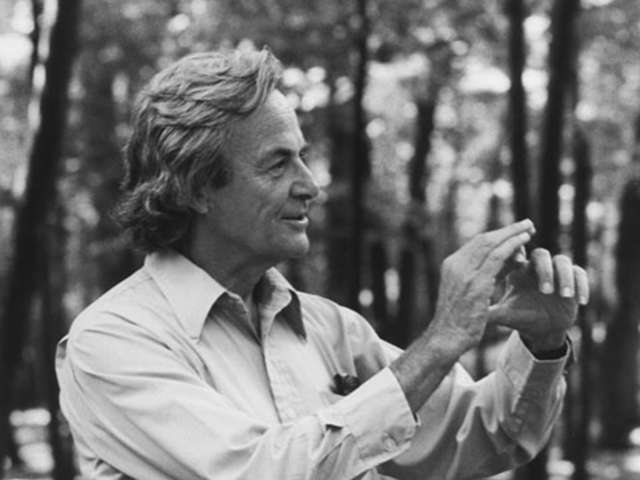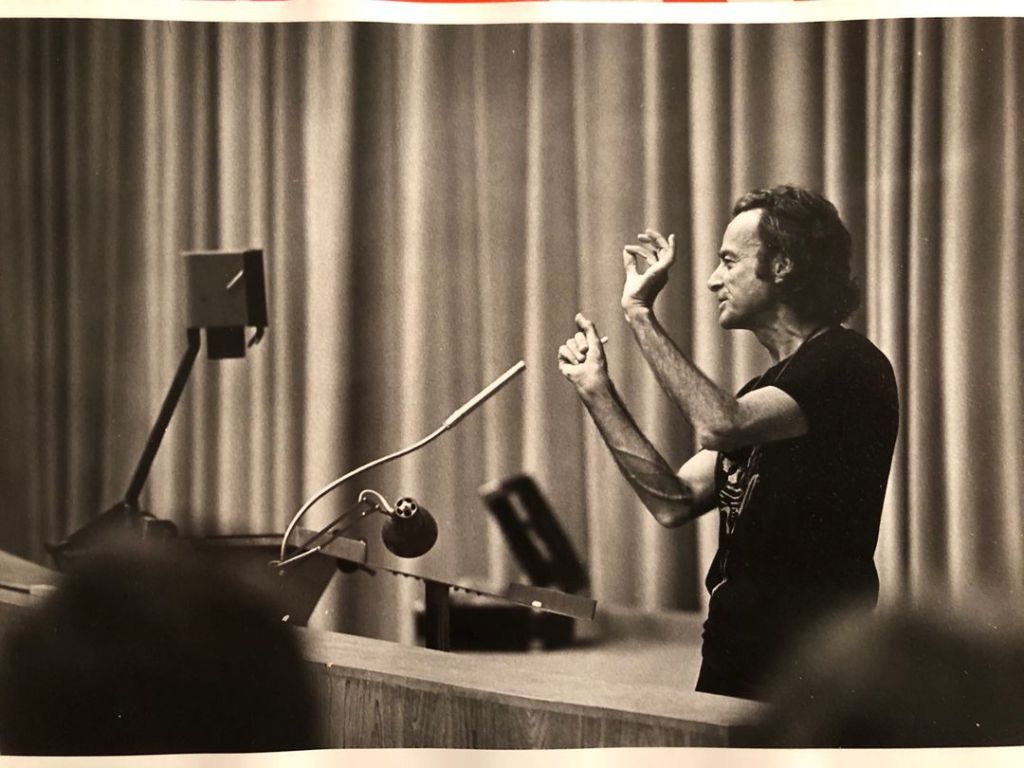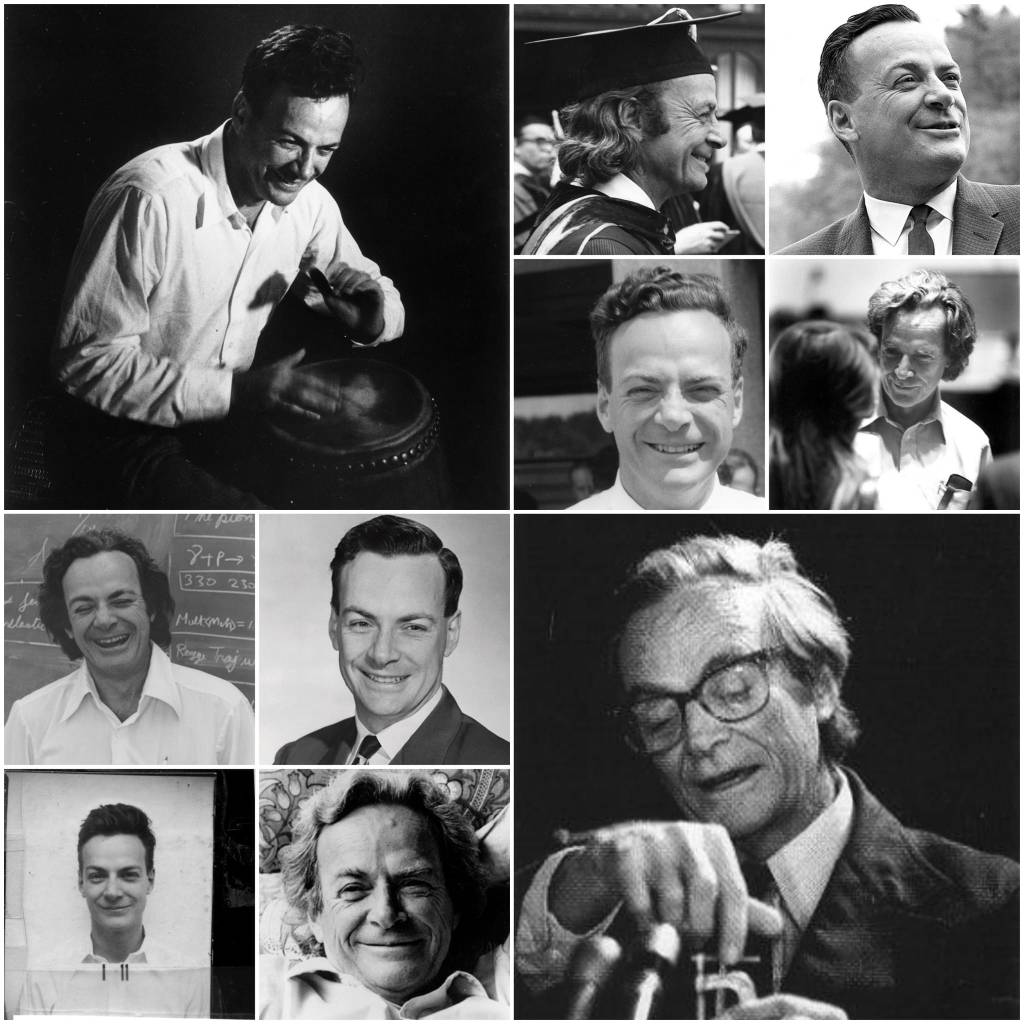I dedicate this page to the memory of
Richard Feynman
who showed me the excitement and beauty through the lens of physics.
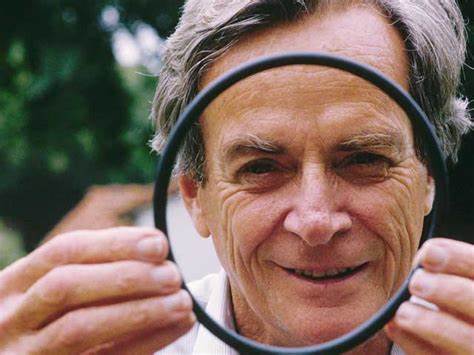
A brief overview about him:
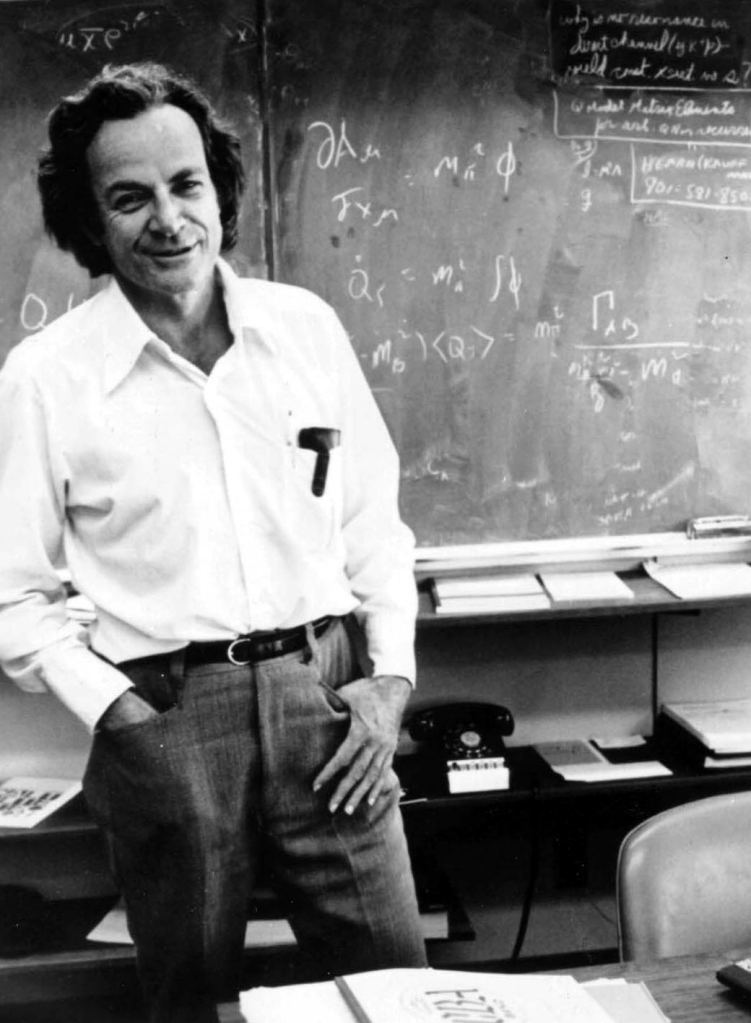
Richard Feynman was a renowned physicist and Nobel laureate who left an indelible mark on the scientific community. Born on May 11, 1918, in New York City, Feynman’s contributions spanned various fields, including quantum mechanics, particle physics, and quantum electrodynamics. His groundbreaking work in the field of quantum electrodynamics earned him the Nobel Prize in Physics in 1965.
Feynman’s lectures and books, such as “The Feynman Lectures on Physics,” have inspired countless young minds to pursue a career in science. His ability to explain complex concepts in a simple and engaging manner made him a beloved figure among students and researchers alike. Feynman emphasized the importance of curiosity, critical thinking, and a deep understanding of fundamental principles in scientific exploration.
One of his most famous book, titled “Surely You’re Joking, Mr. Feynman!” offers invaluable insights and inspiration to the younger generation. In his book, Feynman shared anecdotes from his life, highlighting the importance of curiosity, perseverance, and an unwavering passion for learning. He encouraged students to embrace failure as a necessary part of the scientific process and to always maintain a sense of wonder and curiosity about the world.
Feynman’s legacy extends beyond his scientific achievements. He was a charismatic and unconventional thinker, known for his sense of humor and love for adventure. His enthusiasm for learning and his ability to approach complex problems with creativity and imagination serve as an inspiration for young people to think outside the box and pursue their passions fearlessly.
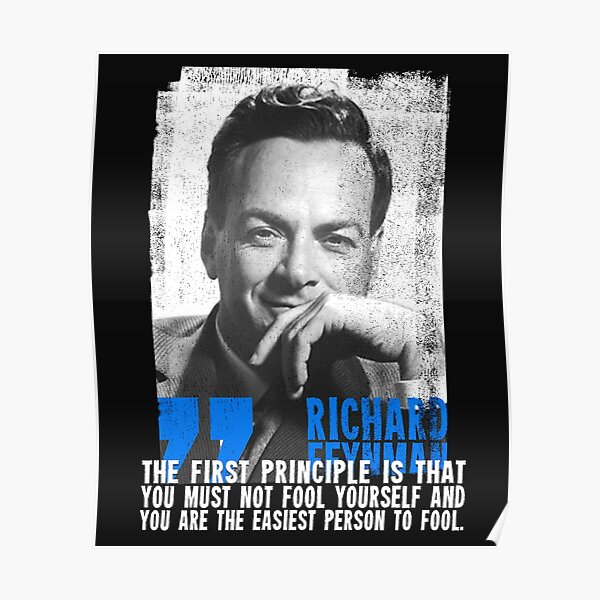
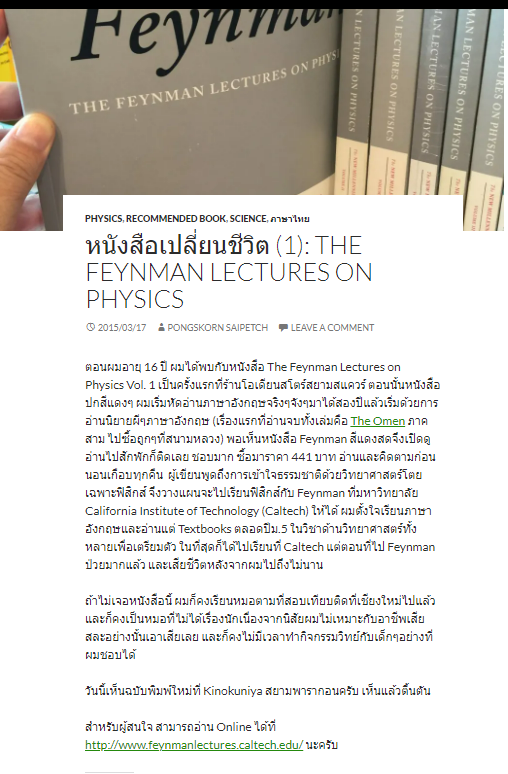
How do I know Richard Feynman?
Ans: In 2018, by Mr Pongskorn Saipetch. Then I order “Surely You’re Joking, Mr. Feynman!” from Kinokuniya Books Thailand and read it.
After that, I watched The complete FUN TO IMAGINE with Richard Feynman and read The Feynman Lectures on Physics at RMUTT library.
His Quotes
If you wanna master something, teach it.
The problem is not people being uneducated. The problem is that people are educated just enough to believe what they have been taught, and not educated enough to question anything from what they have been taught.
Stupidity: You think you know everything, without questioning.
Intelligence: You question everything you think you know.
The more I ask why, it gets interesting. That’s my idea, that the deeper a thing is the more interesting it gets.
As a matter of fact, I love to teach. I like to think of new ways of looking at things as I explain them, to make them clearer — but maybe I’m not making them clearer. Probably what I’m doing is entertaining myself.
It’s Okay to say “I don’t know!”. There’s no shame in that! The only shame is to pretend that we know everything.
Your intelligence cannot be measured by a number. It is defined by your willingness to learn, solve problems and try new things. You are more than just a number. Develop your skills. Share your brilliant ideas. Your skills are more valuable than your grades.
Don’t just teach your children how to be successful, teach them how to respond when they are not successful, teach them how to handle failures and learn from their mistakes. (use with FGC-21 Fly CubeSat)
Don’t be impressed by money, followers, degrees, and titles.
Be impressed by kindness, integrity, humility, and generosity.
Life is too short to worry about stupid things. Have fun. Fall in love. Regret nothing, and don’t let people bring you down. Study, think, create, and grow. Teach yourself and teach others.
The ultimate purpose of education is to change an empty mind into an open one.
If you wanna be a good teacher, teach open-mindedness, teach enthusiasm, inquisitiveness, *heuristics, and *values.
It’s not the lack of intelligence, it’s the lack of focus that is stopping you.
Be humble. Be teachable. The universe is bigger than your view of the universe. There’s always room for a new idea. Humility is necessary for growth.
Teach your children early what you learned late.
Knowledge is having the right answers.
Intelligence is asking the right questions.
Wisdom is knowing when to ask the right questions
Your mistakes don’t define who you are. It’s what you do after you have made the mistakes that makes all the difference.
Every mistake you make is a learning experience. They don’t make you less capable. But it’s how you correct them or learn from them that defines you.
Direction is much more important than speed.
When your “education” limits your imagination it’s called indoctrination. Those who cannot think for themselves are truly lost.
Education should be a rewarding experience which allows you to think, imagine, question, doubt and solve problems.
Learn by understanding, not by memorizing.
Understand. Don’t memorize. Learn principles, not formulas.
We need to teach how doubt is not to be feared but welcomed. It’s OK to say, “I don’t know.”
The goal of teaching should not be to help the students learn how to memorize and spit out information under academic pressure.
The purpose of teaching is to inspire the desire for learning in them and make them able to think, understand, and question.
The students won’t cheat in exams if they value their learning more than we value their grades.
But I don’t have to know an answer. I don’t feel frightened by not knowing things, by being lost in a mysterious universe within any purpose, which is the way it really is, so far as I can tell. It doesn’t frighten me.
–feynman, BBC, “The Pleasure of Finding Things Out,” 1981
“To learn a mystic formula for answering questions is very bad.”
– feynman, National Science Teachers Association Fourteenth Convention lecture, “What Is Science?” April 1966
You cannot get educated by this self-propagating system in which people study to pass exams, and teach others to pass exams, but nobody knows anything.
You learn something by doing it yourself, by asking questions, by thinking, and by experimenting.
The difference between a good student and a great one is that a good student is concerned more about the outcome while a great one is fascinated by the process of learning.
Things that Schools should teach:
• Being wrong is not a bad thing.
• It’s Okay to question what you have been taught.
• Grades aren’t as valuable as skills.
• Understanding is more important than memorization.
• Making mistakes is Okay. Learn from your mistakes.
FIVE Productivity FEYNMAN- strategies:
• Stop trying to know-it-all.
• Don’t worry about what others are thinking.
• Don’t think about what you want to be, but what you want to do.
• Have a sense of humor and talk honestly.
• Teach others what you know.
Teach your students
• to doubt,
• to think,
• to question,
• to make mistakes,
• to learn from their mistakes, and most importantly
• have fun in their learning.
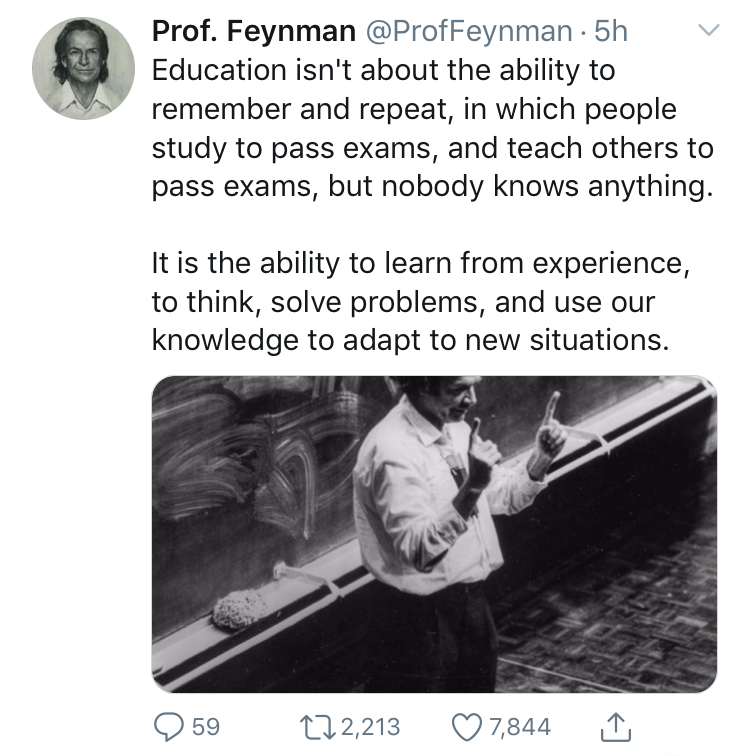
Little more about him
THE PROBLEM OF TEACHING PHYSICS IN LATIN AMERICA
Richard Feynman tries to improve school textbooks
